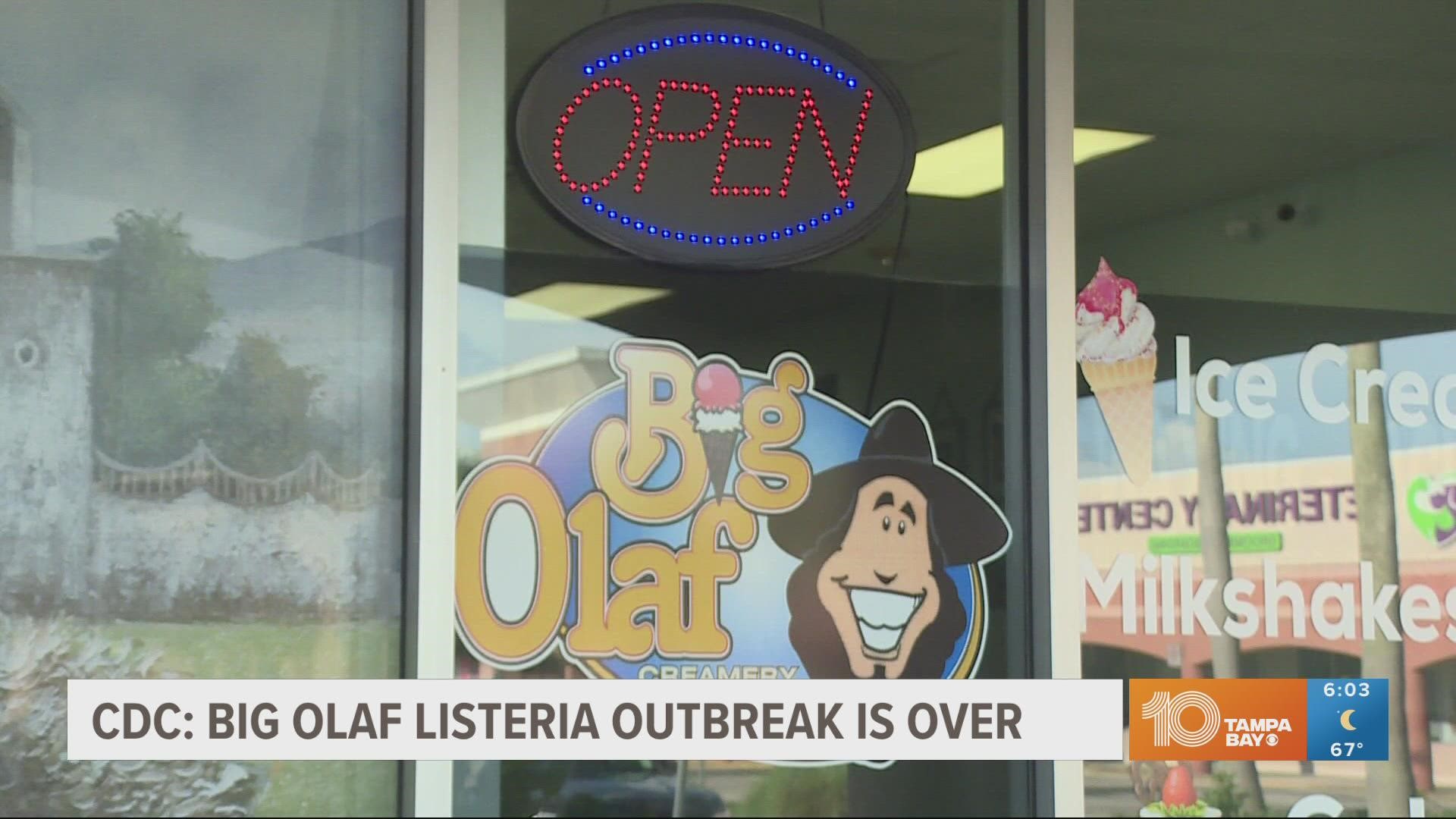SARASOTA COUNTY, Fla. — A listeria outbreak that was first linked to Sarasota ice cream brand Big Olaf Creamery in July is officially over.
The Centers for Disease Control and Prevention announced the news on Wednesday along with the findings of its months-long investigation.
"Epidemiologic, laboratory, and traceback data showed that Big Olaf Creamery ice cream made people sick," the agency confirmed.
A total of 28 people from 11 states were infected with the outbreak strain of Listeria monocytogenes, according to the CDC. Of those 28 people, 27 were hospitalized and one person died.
You can read details of the investigation into Big Olaf on the CDC website.
According to the CDC's timeline, people first started getting sick from this listeria outbreak back on Jan. 1, 2021.
The public first learned that Big Olaf was linked to the outbreak when the CDC put out an advisory on July 2. The agency advised anyone who had Big Olaf ice cream at home to throw it away.
However, it wasn't until July 13 that Big Olaf Creamery issued an official recall of all its flavors and lots. Why the wait? Big Olaf stores are independently owned, so the manufacturer couldn't force the stores to stop selling ice cream without proof the Listeria outbreak was linked to the product.
Throughout the investigation, the CDC found listeria at the Big Olaf Creamery processing facility and in 16 different flavors of the ice cream itself.
Local ice cream stores that sold Big Olaf's products also worked to rebrand and cut ties with the company as more information about the contaminated products was revealed.
Two lawsuits have been filed against Big Olaf Creamery, including one that claims a great-grandmother died after eating contaminated ice cream in Sarasota. Another lawsuit claims a woman suffered a miscarriage after eating affected ice cream.
"Listeria is most likely to sicken pregnant people and their newborns, adults aged 65 or older, and people with weakened immune systems," the FDA wrote on its website. "Other people can be infected with Listeria, but they rarely become seriously ill."

